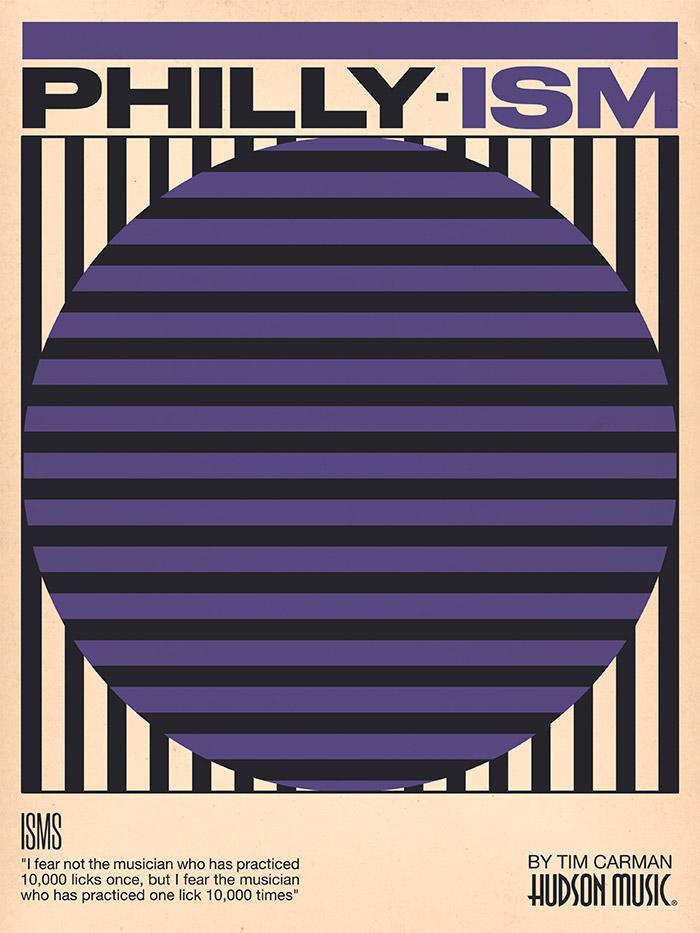Philly-ISM, the second book in Tim Carman’s ISMS series, is a unique analysis of Philly Joe Jones’ RUDIMENTAL approach to soloing. More specifically, it’s a deep dive into Philly’s use of the paradiddle.
With Philly-ISM, you will:
- Learn how Philly Joe utilized the PARADIDDLE sticking and its variations in his solos
- Study 18 Philly solos from legendary recordings
- Permutate, orchestrate, and subdivide the ISM
- Analyze 9 additional Philly Trademark Phrases
- Learn to sing and solo using your ISM over REAL song forms
- ABSORB THE ISM AND CREATE YOUR OWN VARIATIONS!
Includes over one hour of instructional video lessons demonstrating exercises and concepts from this book.
“Tim Carman’s Philly-ISM is a deep dive into the sophisticated tool box that Philly Joe developed as one of the most swinging, and creative, drummers of all-time. Tim breaks down and clearly explains how Philly Joe took simple ideas, gained control over them, and was able to access them in spontaneous musical statements. If you’re interested in digging into Philly Joe’s concept, which is still quite relevant in today’s world, check out Philly-ISM.”
Steve Smith
“Philly-ISM is an interesting and effective approach to understanding some of the language of legendary drummer Philly Joe Jones. Tim’s concept is to look at one rhythmic cell and examine the various possibilities of that idea in a deep way in order to truly understand how to utilize that element in a musical way. This is a concept that once understood, can be applied in many circumstances. I often find myself utilizing a similar approach in trying to get as much mileage out of one idea as possible, so Tim’s book resonates with me. I have been enjoying digging into some of these great variations and solo passages already!”
Stanton Moore
“A great insight into the poetry of Philly Joe Jones, one of my all time favorite drummers!”
Mike Clark
“Tim Carman has assembled a masterful ensemble of insights into the stylings of Philly Joe Jones!! This is absolutely a “must have” for every drummer’s library.”
Bruce Becker



